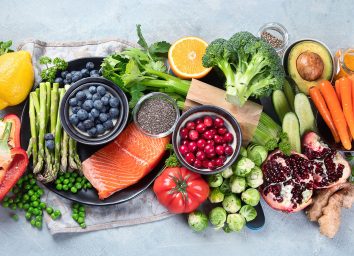The Best Foods to Eat If Heart Disease Runs In Your Family
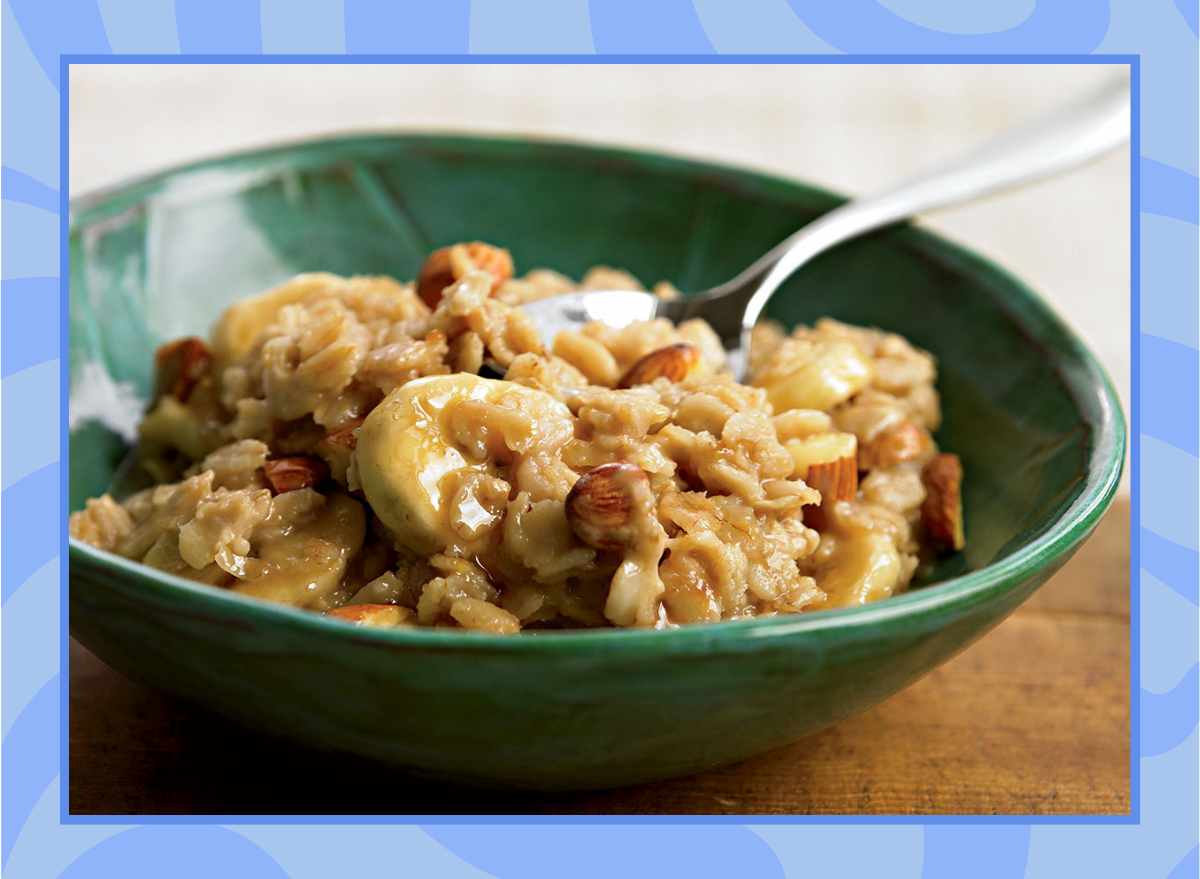
Since almost half of all adult Americans have heart disease, there is a significant likelihood that you have a family member who has this condition. Whether a parent, sibling, or even a grandparent, it is important to know that if you have a direct relative who has a condition like coronary artery disease or a heart valve disease, you have a higher likelihood of developing heart disease, as well.
The good news is that although you can't change your family history of certain diseases, you can decide which lifestyle habits you will adopt. Practicing certain lifestyle habits, like avoiding cigarette smoking, participating in physical activity, and managing stress, are all linked to a reduced cardiovascular disease risk—a fact that people who have a family history of this disease should be aware of (since they are a group that is already at an increased risk without even taking lifestyle factors into account).
When it comes to dietary choices, there is a significant amount of evidence that shows that what we put into our bodies can profoundly impact our heart health. From the DASH diet to the Mediterranean diet to the newly popular Flexitarian diet, there are many dietary patterns that, when followed, are linked to better heart health. While there are slight differences among the many heart-healthy diets out there, most have a few things in common, like they are low in sodium and saturated fat, emphasize fruits and vegetables, and lean on whole grains instead of refined options.
Many foods fit into the "heart-healthy diet" parameters, but some are true superstars for various reasons. Whether it is the fiber content, the antioxidant variety, or the micronutrients the food provides, there are some true heart-healthy superfoods that people who have a family history of heart disease should have on rotation.
If you have a family member with heart disease, here are the foods you should include in your diet to help reduce your risk of developing this very common disease as well. Read on, and for more on how to eat healthy, don't miss The #1 Best Juice to Drink Every Day, Says Science.
Oats
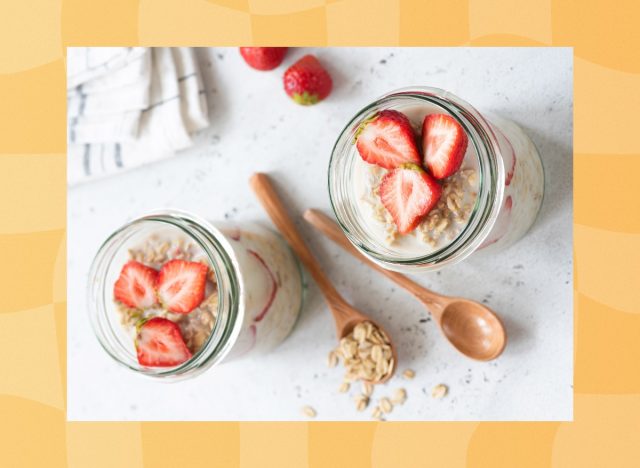
Oats are whole-grain carbs naturally low in fat and sodium, making them a fantastic addition to a heart-healthy diet. But when it comes to nutrients that oats provide, the star of the heart-health show is the beta-glucans naturally found in these carbs.
Beta-glucans are a type of soluble fiber that oats contain. And data shows that eating this fiber is linked to a reduced risk of developing cardiovascular disease, thanks to its ability to lower LDL and total cholesterol.
Pistachios
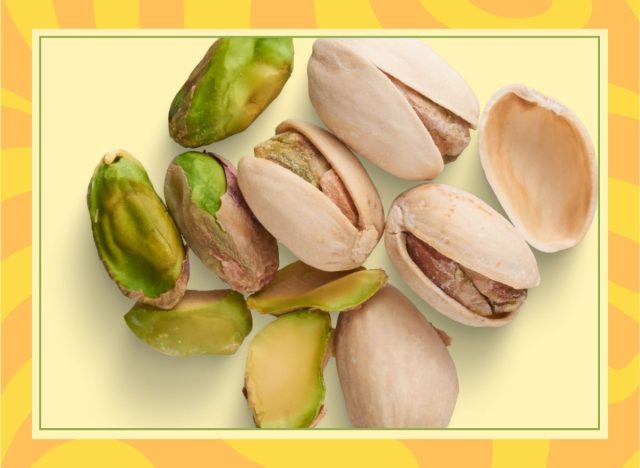
Going nuts for nuts is an excellent practice if you have a family history of heart disease. And among the nut options out there, pistachios are the only good source of protein among popular snack nuts, with more than 10% of the daily value for protein per serving.
Scientific evidence suggests, but does not prove, eating 1.5 ounces per day of most nuts, such as pistachios, as part of a diet low in saturated fat and cholesterol, may reduce the risk of heart disease. Because of this, making a point to eat 1.5 ounces of pistachios every day (around 49 pistachios) is a simple way to help keep your heart healthy naturally.
Sardines
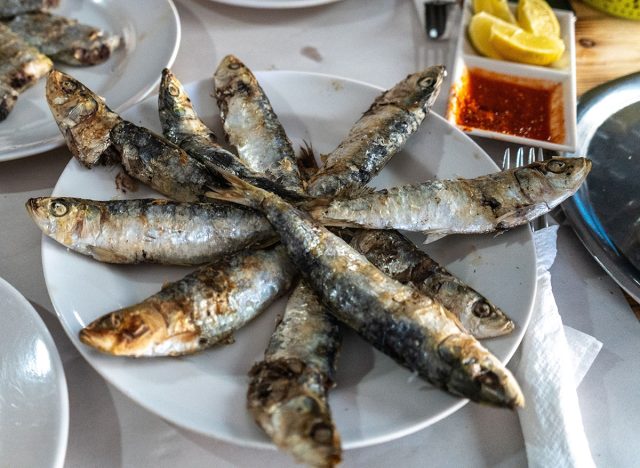
Sardines may not be at the top of everyone's list of favorite foods. But including these tiny fish in your diet may have an impressive impact on your heart disease risk.
According to data published in JAMA Internal Medicine, consuming oily fish, like sardines, twice a week is linked to a reduced risk of developing cardiovascular disease.
Sardines contain heart-healthy omega-3 fatty acids, lean protein, and key vitamins and minerals. Bonus? These tiny fish are typically considerably lower in mercury, making them a great choice for pregnant people and even kids too!
Leafy Greens
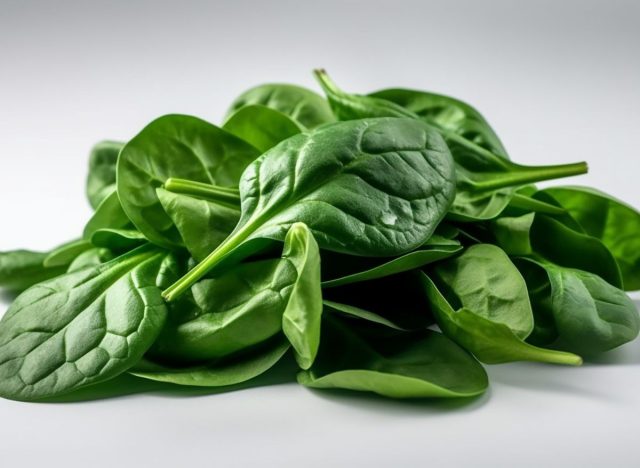
Leafy greens like spinach and kale are low in calories, rich in fiber, and jam-packed with many micronutrients. And data shows that including one cup of raw or half a cup of leafy greens every day may help reduce cardiovascular disease risk.
Greens are rich in nitrates, or natural compounds that can help dilate blood vessels, helping manage blood pressure. Including greens in your smoothies, your soups, and your sandwiches can be easy ways to include more of these important veggies in your diet.
Blueberries
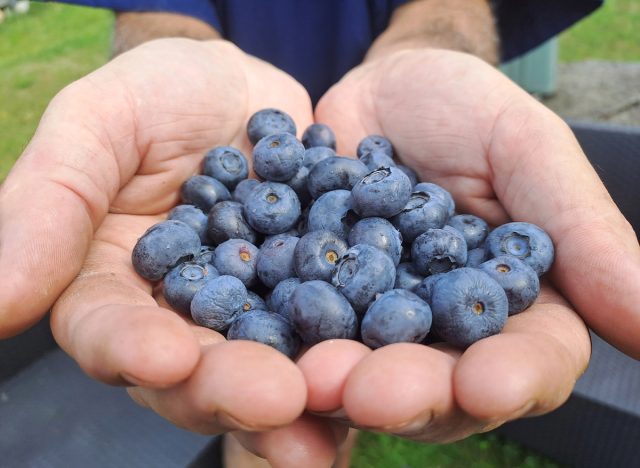
Blueberries can enhance dishes by adding natural sweetness with no added sugar. These naturally blue fruits are rich in anthocyanins, a potent antioxidant, which makes them an important part of a heart disease risk-lowering diet. Studies show that eating anthocyanin-rich foods like blueberries is associated with reducing the risk of cardiovascular disease.
Not a blueberry fan? You can choose other naturally blue/purple foods, like purple potatoes, blackberries, and plums, to get a boost of anthocyanins.
Olive Oil

Among the many foods that may reduce heart disease risk, olive oil appears to be one of the most impactful. In fact, data published in the Journal of the American College of Cardiology showed that people who ate more than half a tablespoon of olive oil every day had a 15% lower risk of experiencing heart disease.

